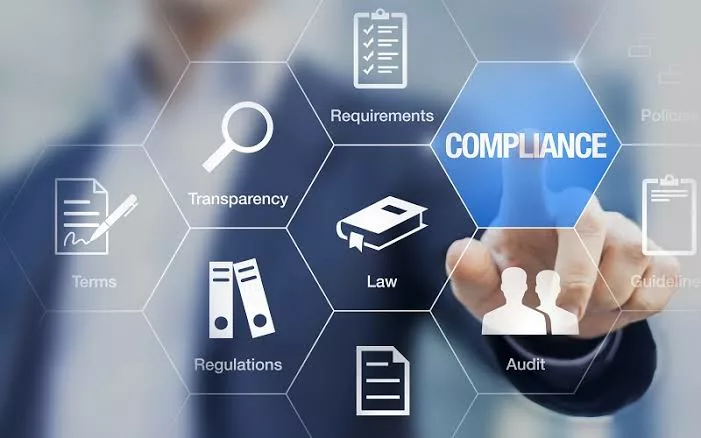The Nigeria Data Protection Commission (NDPC) has granted a window grace period of six months to telecom providers, banks, and other institutions that hold Nigerians’ data to register with the commission.
Recall that president Bola Tinubu signed the country’s Data Protection Bill into law on June 12 this year.
The national commissioner, NDPC, Dr. Vincent Olatunji, who gave the order, at a sensitisation forum on the Nigeria Data Protection Act, said this is in line with the provisions of the Act which mandates all data controllers and data processors to get registered within six months of the enactment of the law.
He added that, all the registered organizations will also be required to file their annual audit report with the commission between January and March next year.
While noting that the Commission is also increasing awareness to let Nigerians know their rights when it comes to their data, Olatunji said the registration of all organizations handling data is to ensure that the rights are preserved by all data processors and controllers in Nigeria.
“What we have in the law is that all data controllers and processors and there are over 500,000 in Nigeria, that they should register with the data protection authority. What the law says is that we should give them six months to acquaint themselves with the provisions of the law.
“That is why we are carrying out awareness across the country, we are going to do another one in Abuja very soon. The data controllers need to register with us because you can’t count them if you don’t know them. So, we need to have a number, and then those that are captured will be monitored to see how they are managing the data in their care and we can regulate them appropriately. Between now and December 31, they are to register with the commission.
“And from the first of January to the 31st of March next year, they are to submit their annual audit report, telling us what they have done in the area of putting in place measures to safeguard our data with them,” Olatunji further explained.
According to Olatunji, every Nigerian is a data subject as they all have data with either the government or private organisations. Highlighting the rights of data subjects, he said: “Data subjects have the right to give their consent or not when their data is being collected; the right of rectification where data is not correct.
“They also have the right of portability, that is to be able to move their data from one data controller to another.
“On the part of data controllers and data processors, they owe us the duty of care and accountability to ensure that the data with them is well protected.
“What kind of measures are they putting in place in terms of technological measures; in terms of organisation measures for them to ensure that the data with them is secure.”
The NDPC boss stated that, one of the aims of the data protection law is to create confidence and trust in the economy and to attract foreign direct investments in Nigeria.
“For a lot of countries, if you don’t have a data protection law and a data protection body, they don’t want to do business with you.
“But with this law, an average investor coming to Nigeria will know that we have the law and we have an independent data protection authority and if there is any breach of your personal data you have someone to go to,” he said.
President Bola Tinubu signed the country’s Data Protection Bill into law on June 12 this year.
This transformed the existing National Data Protection Bureau headed by Olatunji into a Commission that will be driving the implementation of the law.
According to Olatunji, to underscore the importance of the data protection law to Nigeria’s economy, the World Bank has been funding the ongoing awareness about the Act.
90% Of Nigerian Businesses Likely To Adopt AI-Report
BY ROYAL IBEH, Lagos
AI uptake is on the rise across all industries, with 94 per cent of businesses in Nigeria likely to be using AI or planning to do so in cybersecurity, IT operations, (with 93 percent) and customer experience (with 92 per cent), a report has revealed.
The report titled: “The Equinix 2023 Global Tech Trends Survey, which sampled the opinion of 2900 IT decision-makers globally, disclosed that 93 per cent of IT decision-makers globally are seeking to benefit from the advantages of AI and already using or planning to use it across multiple key functions.”
However, despite its widespread adoption across industries, only 3 in 10, representing 37 per cent of IT leaders surveyed in Nigeria believe their team’s ability or existing IT infrastructure are fully prepared for the demands of artificial intelligence technology.
To create scalable AI solutions, the report recommended that businesses must ensure their IT frameworks can accommodate the required ingestion, sharing, storage and processing of massive and diverse data sets, while keeping sustainability in mind.
In addition to digital infrastructure updates, the survey also highlighted the need for education and collaboration to enable IT teams optimize the deployment of this infrastructure, with AI and machine learning expertise being sought by 52 per cent of those growing their IT teams.
On internet connectivity, the report revealed that 47 per cent of IT leaders in Nigeria who were interviewed noted that interconnection has increased the flexibility of their connectivity.
“Other interconnection benefits cited by respondents included network optimization (46 per cent) and optimized end-user experience (45 per cent). This is a key indicator of how many businesses are relying on interconnection to enable digital acceleration,” the report averred.
Responding to the findings of the Report, CEO, MainOne, an Equinix Company, Funke Opeke said: “the growth of interconnection bandwidth and associated IT budgets for interconnection and carrier neutral colocation show how businesses are embracing interconnection as a critical component of their digital strategy, and how they are future-proofing their digital infrastructure to gain competitive advantage.”
On carrier-neutral colocation, the survey recorded a 35 per cent increase in spend compared to the previous year, that recorded a 14 per cent increase, an unsurprising result given predictions from last year, which forecasted a rise in digital deployments that will not only enhance digital transformation, but also build resilience, adding that, more businesses (29 per cent) plan to increase their colocation spend in the next 12 months.
Analyzing their long-term technology strategies, respondents highlighted improving customer experience, accelerating innovation, and complying with data protection regulations amongst others as top priorities amidst their digital expansion plans.
Of the 100 IT leaders surveyed in 2023, 37 per cent are planning to expand geographically into a new region, 30 per cent into a new country and another 45 per cent in a new city in an existing country, with data sovereignty laws as a top deciding factor for those plans. 79 per cent of these respondents are likely to adjust their expansion plans in some form, in adherence to the data sovereignty laws implemented in these new markets.
According to Funke, “As businesses expand their infrastructure to meet the constant growing need for digital services, data sovereignty laws play a critical part in their expansion plans. This is because businesses need to ensure that their data is stored and processed in accordance with the laws of the country in which they operate. However, strict data sovereignty laws can make it difficult for businesses to expand their infrastructure across borders.
“With MainOne, businesses can leverage a globally interconnected ecosystem to expand their reach and tap into new markets, scale their operations and lower latency for critical services and applications, adapt to changing market dynamics and comply with regulatory requirements.”





